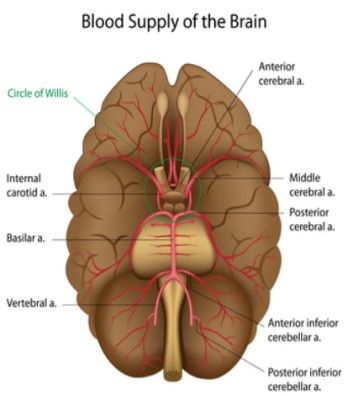Dementia Treatment: The Significance of Early Diagnosis
Learn about the benefits of early diagnosis, common signs and symptoms, and potential causes of dementia. Understand the various treatment options and how they can improve the quality of life for those affected by dementia.

Early diagnosis plays a pivotal role in facilitating more effective treatment options for dementia. Identifying signs of dementia at an early stage can lead to improved medical outcomes. There are several key advantages to early diagnosis:
Informed Decision-Making: Early diagnosis empowers both the patient and their family to actively participate in treatment and management decisions. By intervening before the condition progresses significantly, individuals and their families can gather information and understand the condition better, making informed choices.
Access to Support: Early diagnosis enables the exploration of available support groups and assistance. This allows affected individuals to plan for their future, ensuring their affairs and finances are handled appropriately as their condition advances. Such preparation also helps family members adjust to upcoming changes.
Accurate Diagnosis: An early diagnosis leads to a more precise identification of the condition in its initial stages, helping healthcare professionals tailor treatment plans accordingly.
Addressing Reversible Conditions: Early diagnosis allows for the identification and treatment of conditions that mimic dementia symptoms but are reversible, such as nutritional deficiencies, infections, medication side effects, and depression. Timely intervention prevents these conditions from exacerbating over time.
Treating Accompanying Conditions: Dementia often coexists with conditions like depression and anxiety. Early diagnosis facilitates the timely treatment of these comorbidities, potentially mitigating their impact on the individual's well-being.
Holistic Health Management: Identifying dementia early enables the integration of other medical needs, such as managing physical health conditions and appropriate medication plans.
Enhanced Safety: Early diagnosis helps implement measures to ensure the safety of the affected individual and their family. This could involve supervised activities or restrictions, such as refraining from driving or firearm use, depending on the symptoms and diagnosis.
Once early diagnosis is achieved, the next step involves selecting the most suitable dementia treatment option for the individual's condition. While complete cures are lacking for most types of dementia, treatment aims to slow its progression and enhance quality of life. Early diagnosis aids in finding the most effective treatment, often achieved through trial and error.
Recognizing Dementia Symptoms
Identifying potential signs of dementia is crucial for early diagnosis. While various dementia types manifest differently, some common indicators include:
· Memory Challenges: Increasing forgetfulness, difficulty recalling names, and misplacing items.
· Personality Changes: Shifts in behavior and demeanor, such as becoming agitated or talkative.
· Impaired Activities: Struggling with routine tasks like driving, cooking, and household chores.
· Psychological Symptoms: Paranoia, hallucinations, and disorientation in familiar settings.
· Physical Decline: Frequent falls, mobility issues, and shakiness.
· Motor Skills Difficulty: Trouble with fine motor skills, like opening cans or manipulating objects.
Given the variability in dementia symptoms, seeking professional evaluation is crucial when concerning signs emerge. An accurate diagnosis paves the way for initiating appropriate dementia treatment options.
Understanding Dementia Causes
The causes of dementia are diverse and impact treatment choices. Genetic factors, other illnesses, injuries, and even heavy metal poisoning can contribute to different types of dementia. Genetic mutations and brain cell damage are common factors. Timely diagnosis and treatment can reverse some cases caused by factors like infections, bleeding, or poisoning.
Brain Areas Affected by Dementia
Dementia typically leads to brain cell damage or death, affecting various regions. In Alzheimer's, for instance:
· Ventricles fill with fluid.
· Cortex responsible for memory and thinking deteriorates.
· Hippocampus, essential for new memories, suffers damage.
· Plaque buildup occurs in the brain's neocortex and nerve cells.
· Subcortical areas, governing motor skills, are impacted.

Dementia Treatment Approaches
Dementia treatment options hinge on the type and causes of the condition. Although cures are rare, available drugs can alleviate symptoms. Notable drug categories include:
· Cholinesterase Inhibitors: Enhance thinking and memory, particularly for Alzheimer's patients.
· Antidepressants and Antipsychotics: Address mood disorders associated with dementia.
· Anticonvulsants: Manage seizures and convulsions.
· Medications for Vascular Dementia: Prevent stroke recurrence and manage hypertension.
· Behavioral Modification: Occupational therapy helps patients adapt to changing behaviors and improve daily function.
While some symptoms can be controlled through medication and therapy, improving daily function is a common goal. Caregiver well-being is paramount, especially for family members shouldering this responsibility. Dementia treatment not only targets the individual's health but also acknowledges the challenges caregivers face.
By recognizing the importance of early diagnosis and understanding the multifaceted nature of dementia, individuals and their families can navigate this complex condition with greater efficacy and compassion.
Create A Person Centered Profile For Your Family Member
Practical Tips to Handle Changes in Behaviors with Dementia
Our Resources section can help you find the information and tools that you need. We have courses, videos, checklists, guidebooks, cheat sheets, how-to guides and more.
You can get started by clicking on the link below. We know that taking care of a loved one is hard work, but with our help you can get the support that you need.
Click here to go to Resources Section now!
SOURCES
http://www.ninds.nih.gov/disorders/dementias/dementia.htm
http://health.nytimes.com/health/guides/disease/dementia/overview.html
http://www.webmd.com/alzheimers/tc/dementia-symptoms
http://www.alz.co.uk/info/importance-of-early-diagnosis
http://www.alz.org/braintour/alzheimers_changes.asp
You might also like this article:







